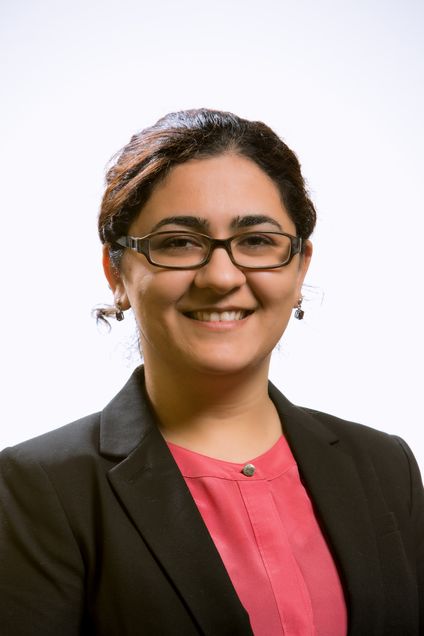Four ENG Professors Receive CAREER Awards
By Liz Sheeley
Assistant Professors Brian Walsh (ME, ECE), Michelle Sander (ECE, MSE), Sahar Sharifzadeh (ECE, MSE) and Lei Tian (ECE) have all received Faculty Early Career Development Program (CAREER) awards from the National Science Foundation (NSF).
CAREER grants are a premier program from the NSF for early career scientists, and last for five years with have a maximum funding amount of $500,000.

Walsh’s award is focused on his research in space physics. The magnetic field around Earth protects it and the spacecraft orbiting around the planet from solar storms that could damage them. But some storms are strong enough to generate cracks or breaks in the magnetic field called magnetic reconnection. That can result in disturbances and, potentially, damage to spacecraft. With the grant, Walsh will study how these cracks form, are repaired and how long it takes for them to grow in size. By understanding this process, Walsh and his team hope to develop a physics-based model that would predict how destructive or harmful a crack could be for spacecraft.

Sander’s research is about developing new laser sources in infrared and near-infrared wavelengths. With this award, she plans to use an infrared microscope and develop a non-invasive way to sample cancerous brain cells by intertwining multiple disciplines, from microscopy and fiber lasers to biomedical analysis and chemical spectroscopy. Her work will help advance cancer research in diagnosis and treatments by providing details on both biochemical spectral signatures and thermo-physical characteristics.

Tian’s award focuses on tomography, a technique that creates sectional images with applications many different fields, including medicine, atmospheric science and archaeology. Optical tomography is a particularly attractive method to researchers since it is noninvasive and uses non-ionizing radiation. Tian will lead the development a new type of optical device with a simple experimental set-up to facilitate easy adoption into existing microscope systems. This would enable scientific and biomedical discoveries by providing means to study biological samples and phenomena that would be otherwise not accessible.

Sharifzadeh’s work focuses on understanding the intricacies of electrons and solar energy. This award supports her research to better understand light interaction with carbon-based organic molecules with the goal of creating new, more efficient materials for solar panels. Her team plans to investigate the fundamental properties that govern the behavior of electrons within organic structures in the presence of light and develop physically-intuitive models of the influence of molecular structure on electronic properties.